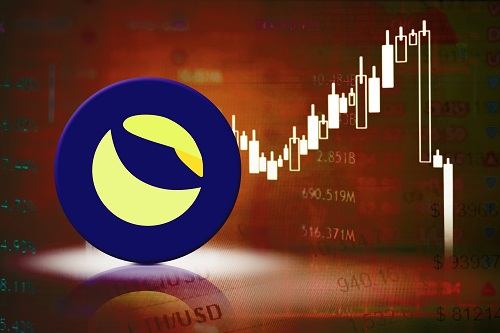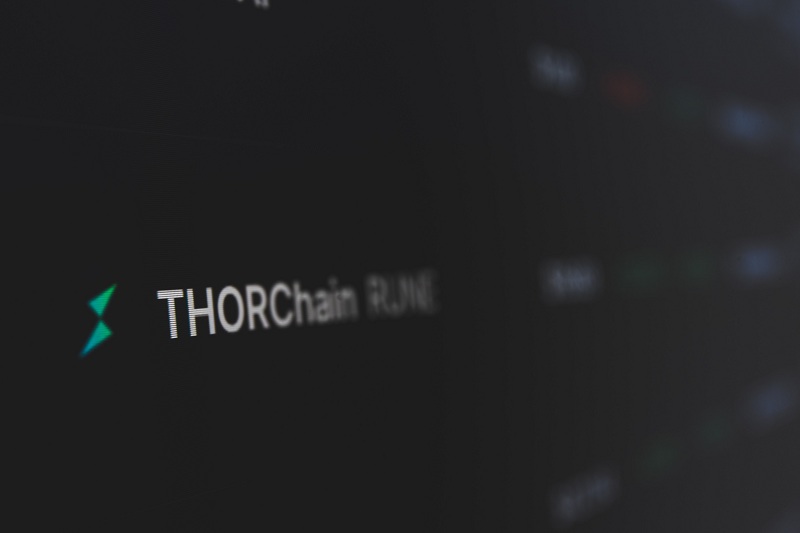Bitcoin(BTC)$88,027.000.98%
Ethereum(ETH)$2,955.173.47%
Tether(USDT)$1.00-0.01%
BNB(BNB)$847.731.18%
XRP(XRP)$1.87-0.16%
USDC(USDC)$1.000.00%
Solana(SOL)$125.671.54%
TRON(TRX)$0.278415-0.21%
 Lido Staked Ether(STETH)$2,955.443.48%
Lido Staked Ether(STETH)$2,955.443.48%Dogecoin(DOGE)$0.1285512.07%

Is Binance’s AFCON Deal the Starting Pistol in Africa?
In January, Binance
emerged as the exclusive cryptocurrency and blockchain sponsor of the Africa Cup
of Nations (AFCON) 2021 tournaments, the biggest football contest in
Africa.
TotalEnergies AFCON
2021, which was broadcast live in more than 160 countries and attracted an
audience of over 300 million people, was won by Senegal in February after several
stages of matches played in five African cities.
This move from Binance,
which recently signed a
five-year sponsorship deal with the Argentine Football Association, is probably
the first large-scale attempt by a cryptocurrency exchange to ride on the back
of Africa’s most popular sport, football, to penetrate the continent.
“Football is super important as it
is a unifying factor on the entire continent. Lots of people on the continent
are either active or passive football fans, making the sport an excellent way
to target people across the continent,” Carine Dikambi, Francophone Africa Lead
at Binance told Finance Magnates.
“As such, people who would otherwise
be unsure about the legitimacy of crypto are able to see crypto in a different
light,” she added.
The Rise of Crypto Sports
Sponsorship
The origin of crypto
sports sponsorship has been traced back to 2014 when US-headquartered Bitcoin
payment service provider, BitPay, signed a sponsorship deal with ESPN Events,
an American multinational sporting event promoter owned by ESPN Inc.
Restrictions on crypto
promotions by major networks such as Facebook and Google due to fear of scams
and frauds probably contributed a great deal to the rise of crypto sports
sponsorships as brands seek alternatives to gain more customers.
Since 2014, the sports
world has been seeing multi-million dollar crypto sports sponsorship deals,
from football, esports, and basketball to hockey, car racing, and wrestling.
In fact, the International
Federation of Association Football (FIFA), the world football governing body, recently
unveiled Singapore-based cryptocurrency exchange, Crypto.com, as a sponsor
for the FIFA World Cup Qatar 2022.
This marriage
between cryptocurrency and sports has also led to increased interest in the
creation of club-based digital or fan tokens.
Recent Crypto Sports Deals
Europe and the US have seen some of the biggest sponsorship deals from the crypto world.
Last year, the Staples Centre, will houses some of the biggest
sports teams in the US including football and hockey teams, was renamed the
Crypto.com Arena.
The renaming happened after Crypto.com signed a 20-year $700
million deal for naming rights to the iconic sports arena.
Still in the US, the exchange was recently announced as official title partner of the Formula 1 Crypto.com Miami Grand Prix.
It also recently signed a deal reportedly worth $175 million with the Ultimate Fighting Championship, an American mixed martial arts promotion company.
Outside the US, Crypto.com has expanded its presence to Australia with a multi-year collaboration with the Adelaide Football Club.
Additionally, Coinbase, the largest cryptocurrency exchange by trading volume in the
US, brokered a deal with the US National Basketball Association on the eve of
its 75th anniversary, to leverage on the association’s platforms and
leagues to attract exposure to its crypto products from sports lovers.
Around Mid-May this year, Coinbase also announced its partnership with Seattle Storm, an American professional basketball team.
Many
top football clubs in Europe including Manchester City, Manchester United, Wolverhampton Wanderers (or just Wolves), Arsenal, Barcelona
and Paris Saint-Germain have also entered various crypto sponsorship deals with
exchanges and blockchain companies.

Meanwhile,
Binance’s deal with AFCON is Africa’s biggest crypto sports sponsorship yet—and
probably the first major crypto sports deal from a crypto exchange or blockchain company.
What
impact will it have on a continent struggling to come to terms with
cryptocurrencies?
Will the deal be the starting pistol for other crypto sports
sponsors to target Africa?
How far can crypto sports sponsorship go in the face of the continent’s multi-faceted crypto regulations?
Africa: Fighting for Legitimacy
Africa currently has a divided
cryptocurrency industry.
While a few countries like South
Africa have sanctioned the use of cryptocurrencies, the majority such as Nigeria
have placed implicit bans on them, and four countries—Algeria, Egypt, Morocco,
and Tunisia—have placed absolute bans on them.
However, there are also 17 countries
in the continent that are still uncertain about how to regulate
cryptocurrencies, according to the
Africa Blockchain Report 2021.

Despite all these, cryptocurrency
adoption is on the rise in Africa.
According to Chainalysis,
cryptocurrency adoption in Africa grew by 1200% between July 2020 and July
2021, making the continent one of the fastest adoption destinations in the
world.
Placed side by side—a divided
cryptocurrency regulatory environment and a continent see rising cryptocurrency adoption—experts
believe Binance’s move is a needed extra but with its own limit.
“Partnerships like this can be
fruitful, but it’s vital to consider that Africa has some incredible momentum
going when it comes to adopting cryptocurrency already,” explained Adam Tracey,
Operations Lead at LocalCoinSwap.
Tracey further explained that while
sport is an incredible tool for increasing brand awareness, “it’s more the potential
for increasing dialogue while normalizing participation in the cryptocurrency
space that can be the most significant benefit.”
“It’s one thing to see a sport drink
promoted and take the plunge into giving it a go when you see it on the shelves
at the store. It’s another to dive into cryptocurrency without additional
resources or knowledge,” Tracey told Finance Magnates.
Dikambi reiterated this point,
noting that “a big challenge that can limit the contribution of sports to the
adoption of cryptocurrencies is a lack of understanding of the use cases as
well as the underlying technology.”
“This means that despite the
increased awareness, there is still the need to educate the new people who have
been reached by these collaborations,” Dikambi said.
With the AFCON 2021 done and dusted,
it’s left to see if Binance’s deal will truly be the starting pistol for Africa.
In January, Binance
emerged as the exclusive cryptocurrency and blockchain sponsor of the Africa Cup
of Nations (AFCON) 2021 tournaments, the biggest football contest in
Africa.
TotalEnergies AFCON
2021, which was broadcast live in more than 160 countries and attracted an
audience of over 300 million people, was won by Senegal in February after several
stages of matches played in five African cities.

This move from Binance,
which recently signed a
five-year sponsorship deal with the Argentine Football Association, is probably
the first large-scale attempt by a cryptocurrency exchange to ride on the back
of Africa’s most popular sport, football, to penetrate the continent.
“Football is super important as it
is a unifying factor on the entire continent. Lots of people on the continent
are either active or passive football fans, making the sport an excellent way
to target people across the continent,” Carine Dikambi, Francophone Africa Lead
at Binance told Finance Magnates.
“As such, people who would otherwise
be unsure about the legitimacy of crypto are able to see crypto in a different
light,” she added.
The Rise of Crypto Sports
Sponsorship
The origin of crypto
sports sponsorship has been traced back to 2014 when US-headquartered Bitcoin
payment service provider, BitPay, signed a sponsorship deal with ESPN Events,
an American multinational sporting event promoter owned by ESPN Inc.
Restrictions on crypto
promotions by major networks such as Facebook and Google due to fear of scams
and frauds probably contributed a great deal to the rise of crypto sports
sponsorships as brands seek alternatives to gain more customers.
Since 2014, the sports
world has been seeing multi-million dollar crypto sports sponsorship deals,
from football, esports, and basketball to hockey, car racing, and wrestling.
In fact, the International
Federation of Association Football (FIFA), the world football governing body, recently
unveiled Singapore-based cryptocurrency exchange, Crypto.com, as a sponsor
for the FIFA World Cup Qatar 2022.
This marriage
between cryptocurrency and sports has also led to increased interest in the
creation of club-based digital or fan tokens.
Recent Crypto Sports Deals
Europe and the US have seen some of the biggest sponsorship deals from the crypto world.
Last year, the Staples Centre, will houses some of the biggest
sports teams in the US including football and hockey teams, was renamed the
Crypto.com Arena.
The renaming happened after Crypto.com signed a 20-year $700
million deal for naming rights to the iconic sports arena.
Still in the US, the exchange was recently announced as official title partner of the Formula 1 Crypto.com Miami Grand Prix.
It also recently signed a deal reportedly worth $175 million with the Ultimate Fighting Championship, an American mixed martial arts promotion company.
Outside the US, Crypto.com has expanded its presence to Australia with a multi-year collaboration with the Adelaide Football Club.
Additionally, Coinbase, the largest cryptocurrency exchange by trading volume in the
US, brokered a deal with the US National Basketball Association on the eve of
its 75th anniversary, to leverage on the association’s platforms and
leagues to attract exposure to its crypto products from sports lovers.
Around Mid-May this year, Coinbase also announced its partnership with Seattle Storm, an American professional basketball team.
Many
top football clubs in Europe including Manchester City, Manchester United, Wolverhampton Wanderers (or just Wolves), Arsenal, Barcelona
and Paris Saint-Germain have also entered various crypto sponsorship deals with
exchanges and blockchain companies.

Meanwhile,
Binance’s deal with AFCON is Africa’s biggest crypto sports sponsorship yet—and
probably the first major crypto sports deal from a crypto exchange or blockchain company.
What
impact will it have on a continent struggling to come to terms with
cryptocurrencies?
Will the deal be the starting pistol for other crypto sports
sponsors to target Africa?
How far can crypto sports sponsorship go in the face of the continent’s multi-faceted crypto regulations?
Africa: Fighting for Legitimacy
Africa currently has a divided
cryptocurrency industry.
While a few countries like South
Africa have sanctioned the use of cryptocurrencies, the majority such as Nigeria
have placed implicit bans on them, and four countries—Algeria, Egypt, Morocco,
and Tunisia—have placed absolute bans on them.
However, there are also 17 countries
in the continent that are still uncertain about how to regulate
cryptocurrencies, according to the
Africa Blockchain Report 2021.

Despite all these, cryptocurrency
adoption is on the rise in Africa.
According to Chainalysis,
cryptocurrency adoption in Africa grew by 1200% between July 2020 and July
2021, making the continent one of the fastest adoption destinations in the
world.
Placed side by side—a divided
cryptocurrency regulatory environment and a continent see rising cryptocurrency adoption—experts
believe Binance’s move is a needed extra but with its own limit.
“Partnerships like this can be
fruitful, but it’s vital to consider that Africa has…












